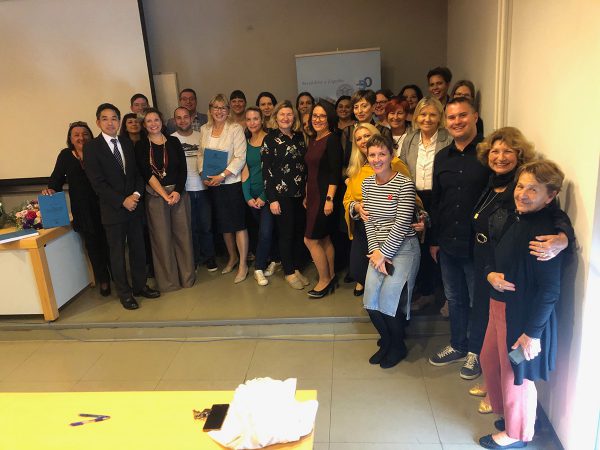Saša Zelenika, University of Rijeka, Faculty of Engineering
With regard to:
- considerable growth of interest in interdisciplinary and multidisciplinary work in the field of micro and nanotechnology (where physics, chemistry, biology, electronics, engineering and other technical disciplines are synergicaly integrated)
- a substantial increase in investments in this field (estimated by Nexus’s (ESPRIT Network of Excellence on Multifunctional Microsystems) turnover in the market of micro and nanostructures of € 30 billion in year 2000 rose to almost € 60 billion in 2009, estimates show that this growth will continue to be exponential and that one third of the turnover will be accomplished in Europe, with annual growth of the European market of about 15 percent);
- scientific relevance of the area (exponentially growing number of publications, scientific journals dealing with these issues are established and quickly becoming well known and quoted, rapid growth of professional associations, areas of the EU 7th framework research programs dealing with nanotechnologies, similar programs have been developed on a national level in Germany, UK, Netherlands, Switzerland, the Czech Republic, Romania and Croatia (the decision of the NSC in October 2005, that defines the priority areas of Croatian science and the Strategic plan of NZZ)
- growth of opportunities and demand for higher education in the field of micro and nanotechnology (the new departments and institutes are open at the world renowned universities: MIT (USA), ETHZ, EPFL (CH), Oxford (UK), ANU (Australia). The market simply begs for specialists of this profile and there is a shortage of them even in the most developed world economies.
University of Rijeka reached a strategic decision that the micro and nanotechnology is one of the priority areas of development. Projects are supported by the formation of the Laboratory for Surface and Materials and the Laboratory for elemental microanalysis at the Department of Physics, University of Rijeka and the Laboratory for precision engineering and technology of micro-and nanosystems at the Technical Faculty in Rijeka. Laboratories are equipped with the help of resources obtained in the competitive contests NZZ and other national and international funds (such as, for example, the Swiss National Science Foundation).
Laboratories cooperate with numerous institutions at home and abroad, and cover the following areas of scientific and educational work:
- micro-systems technology, especially modern project methodologies applied to ultra-high precision positioning systems;
- compliant mechanisms
- mechanical, electro-mechanical and opto-electro-mechanical precision micro-systems and their integration in mechatronic systems;
- manipulation, assembly and packaging of micro-structures;
- scaling effects in the mechanical properties of materials;
- high-precision displacement measurement system based on laser interferometry;
- production of microstructures using deep X-rays lithography (LIGA technology);
- application of ion and electron beams and X-ray characterization and modification of semiconductor materials, thin films and nanostructures;
- application of synchrotron radiation in materials analysis;
- atomic collisions, ionization processes and phase transformations in semiconductor compounds and nanostructures;
- analytical techniques of surface physics and materials science;
- nuclear techniques for elemental analysis;
- equipment and instruments for synchrotron radiation and particle accelerator technology.
At the University of Rijeka there is also an initiative for the establishment of an interdisciplinary university center for micro- and nanoscience and technology, in which would include the listed laboratories and additionally, after the return of our scientists from abroad, the Laboratory for ultrafast opto-acoustics and quantum optics would be established, which will deal with ultrafast laser spectroscopy, ultrafast opto-acoustics, Fabry-Perot resonators and quantum optics. Space is allready provided for the Centre for Micro-and Nanoscience and Technology in the building of the University departments on the new campus of the University of Rijeka, while we’ll try to obtain the funds for the necessary equipment by applying to suitable EU tenders and other international sources.
[BACK]

